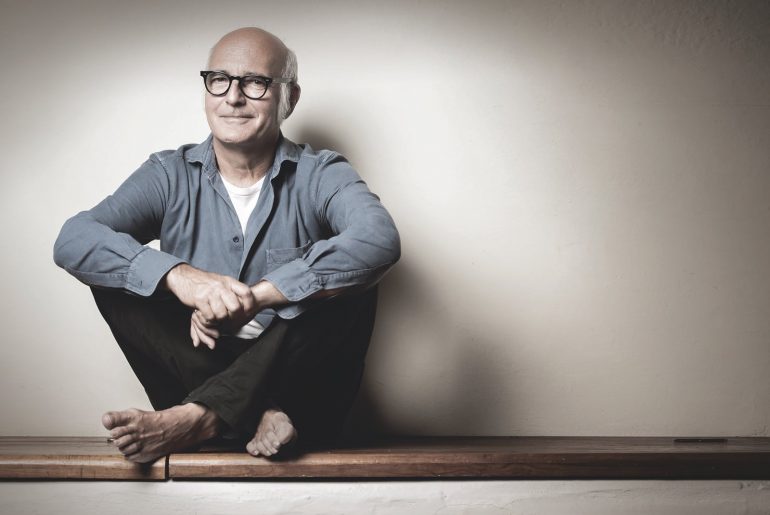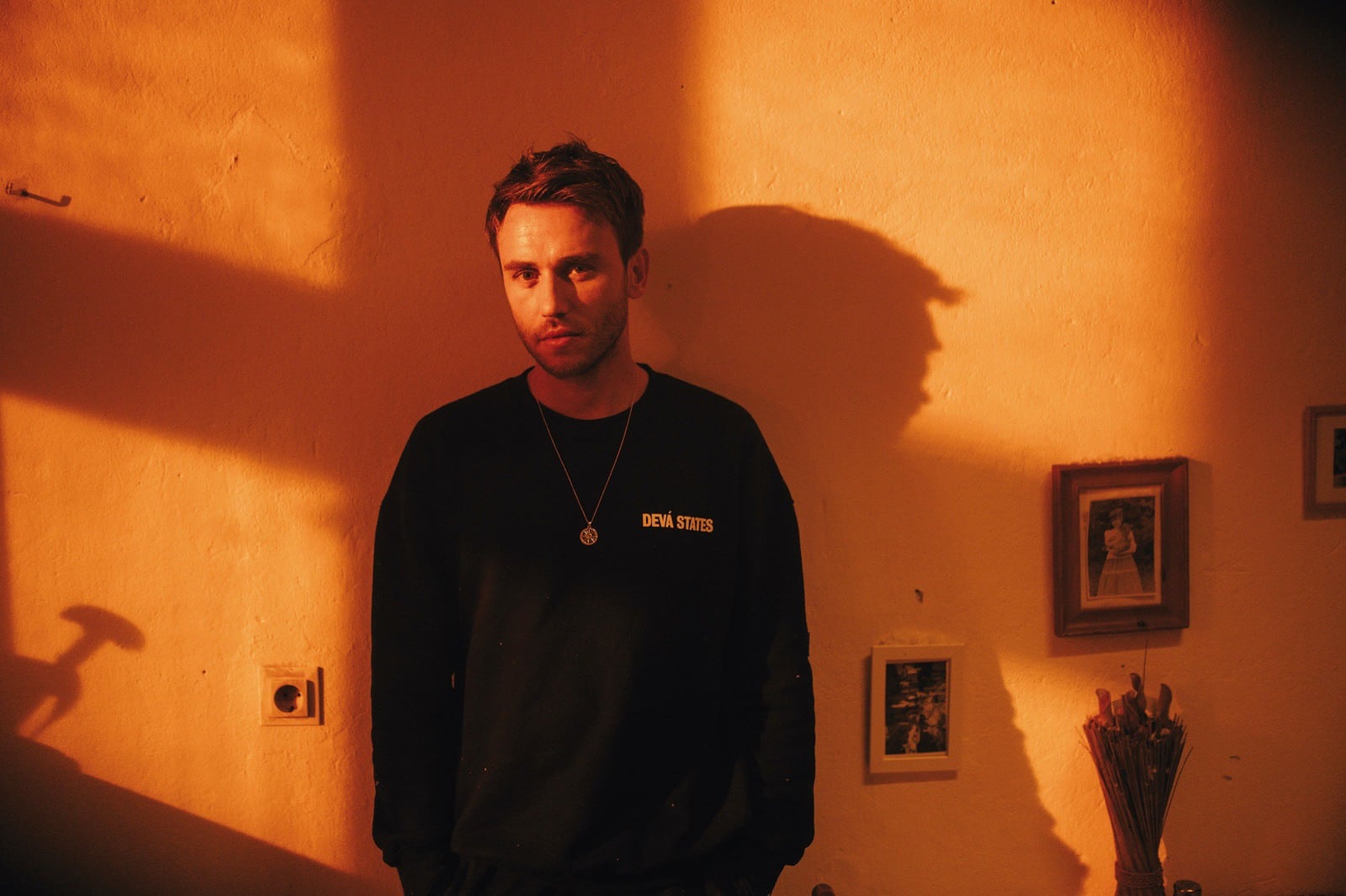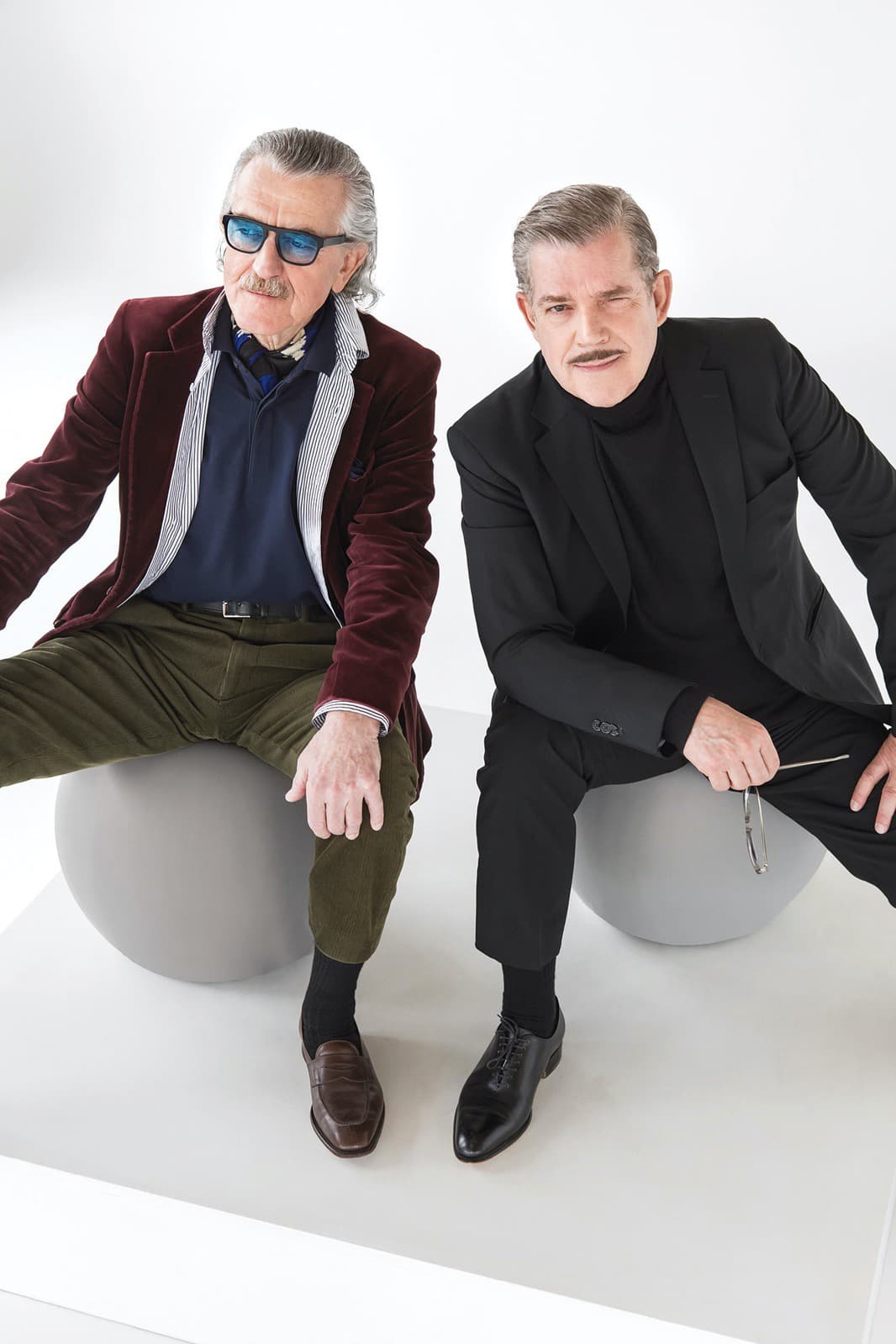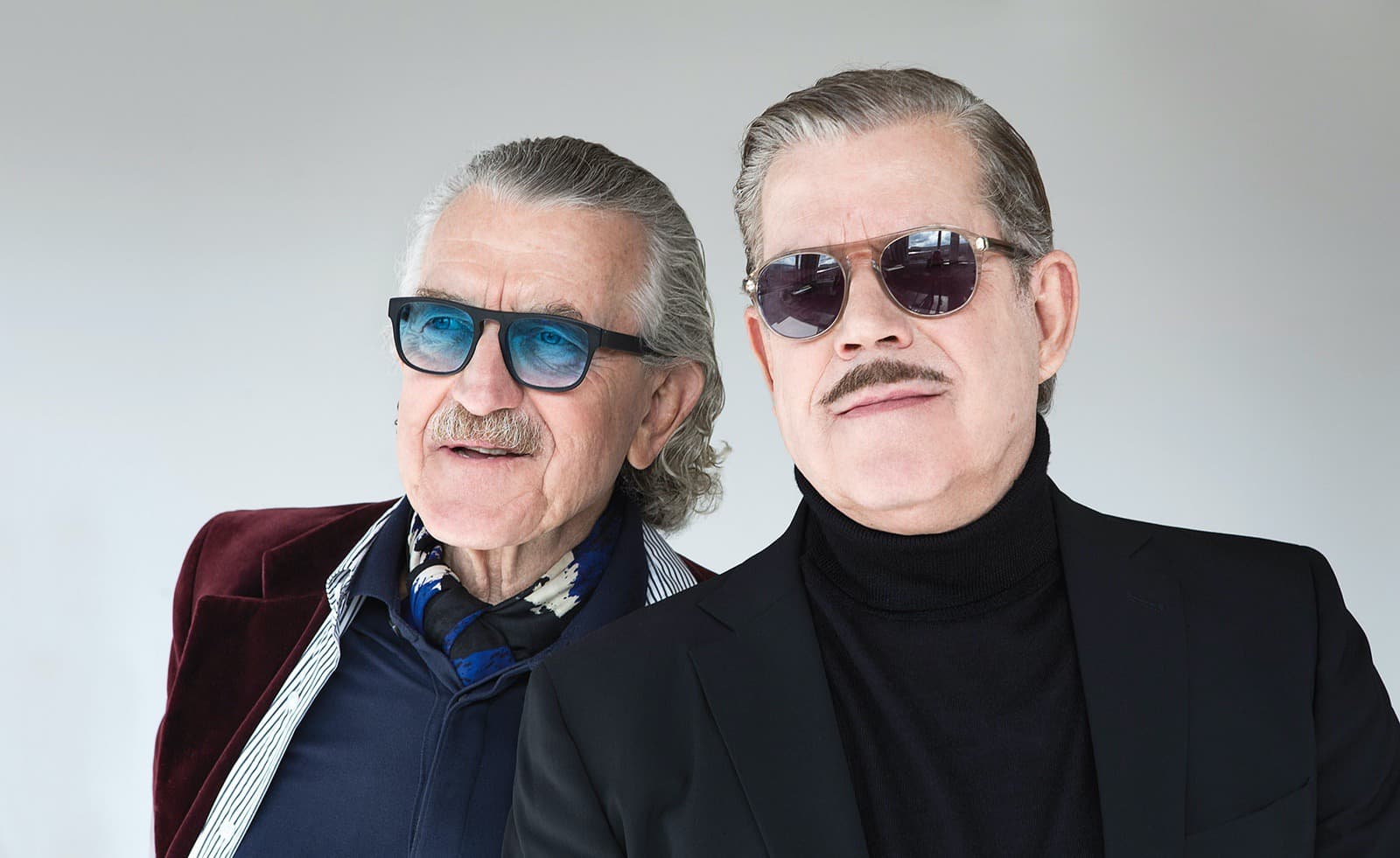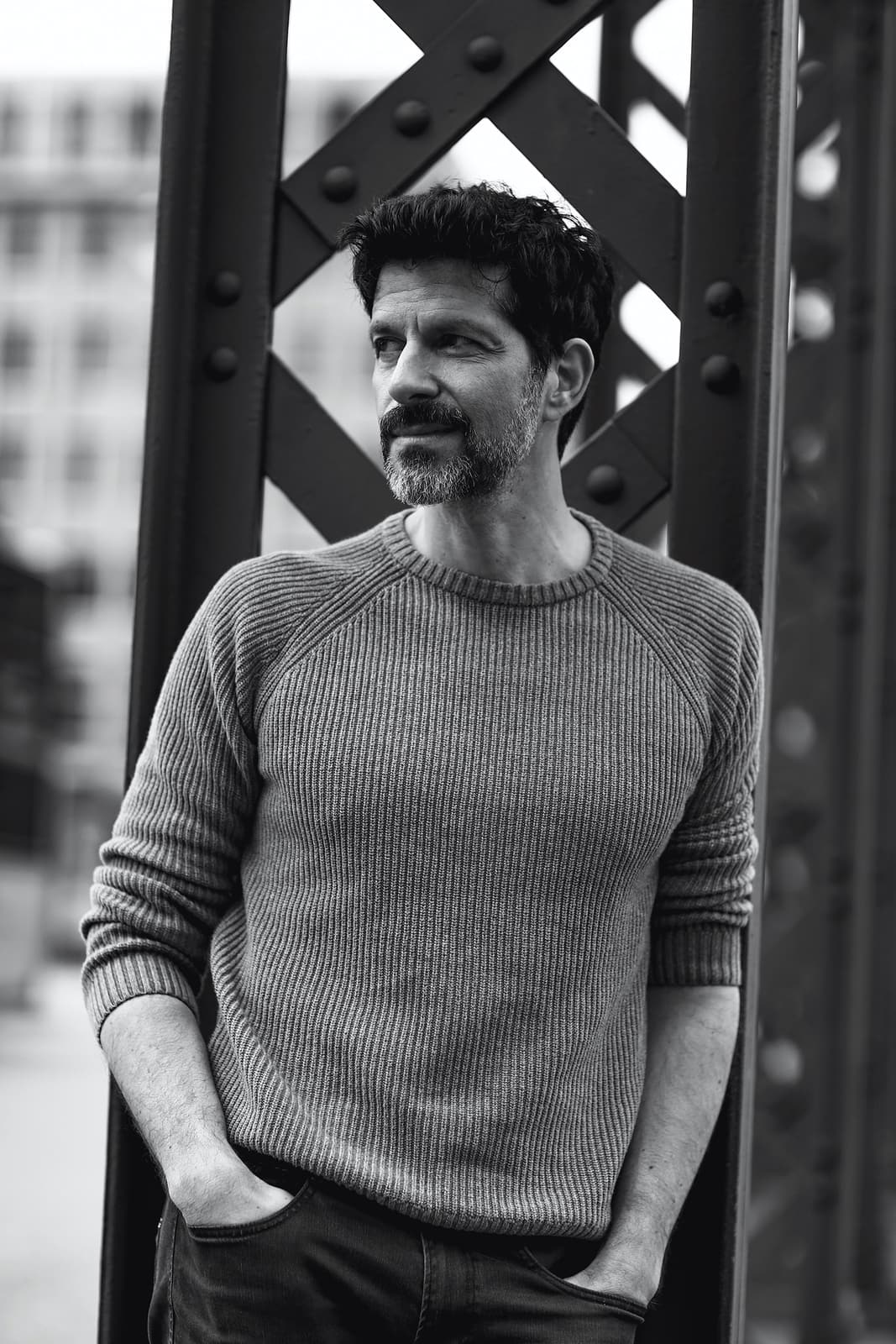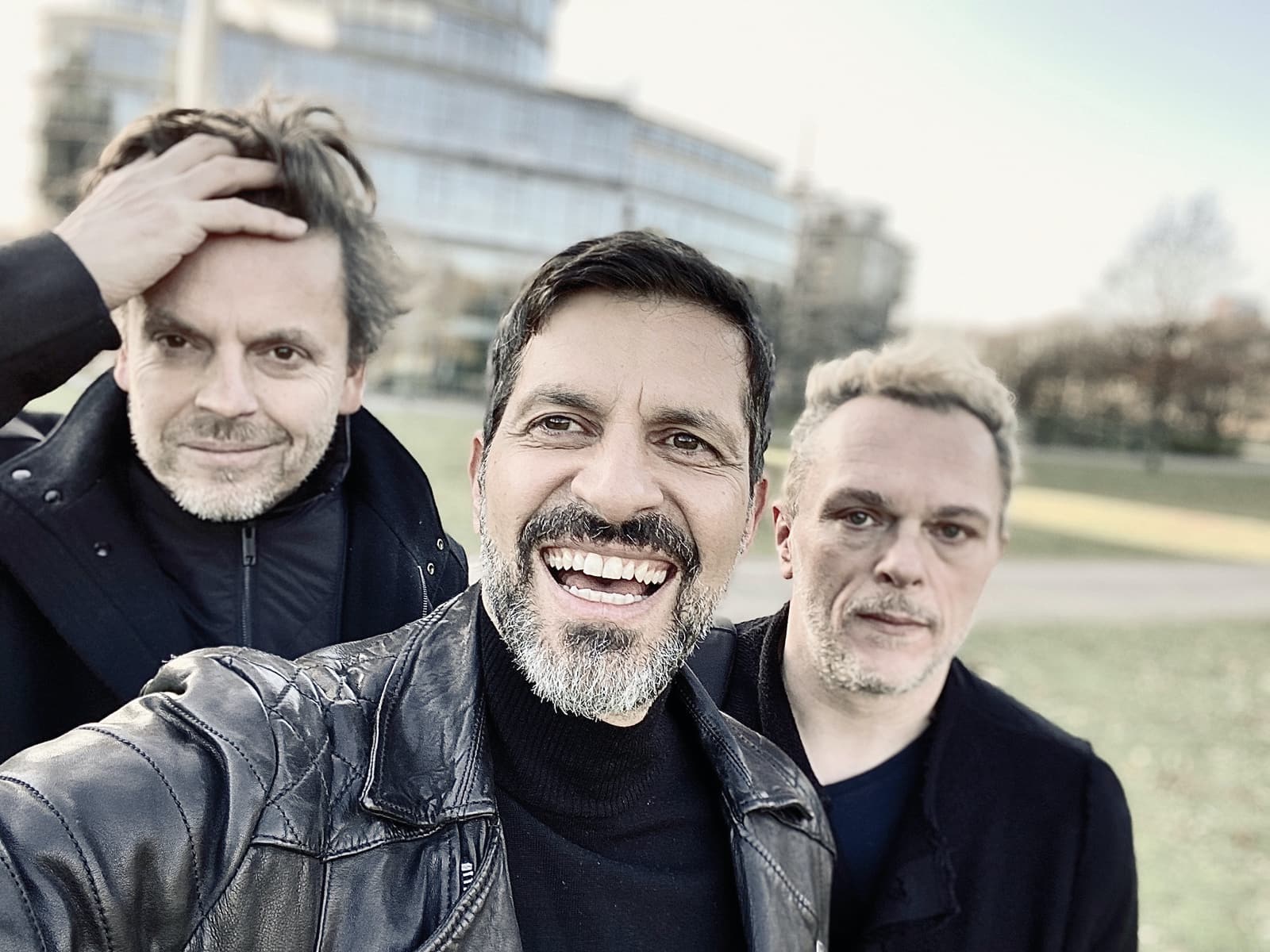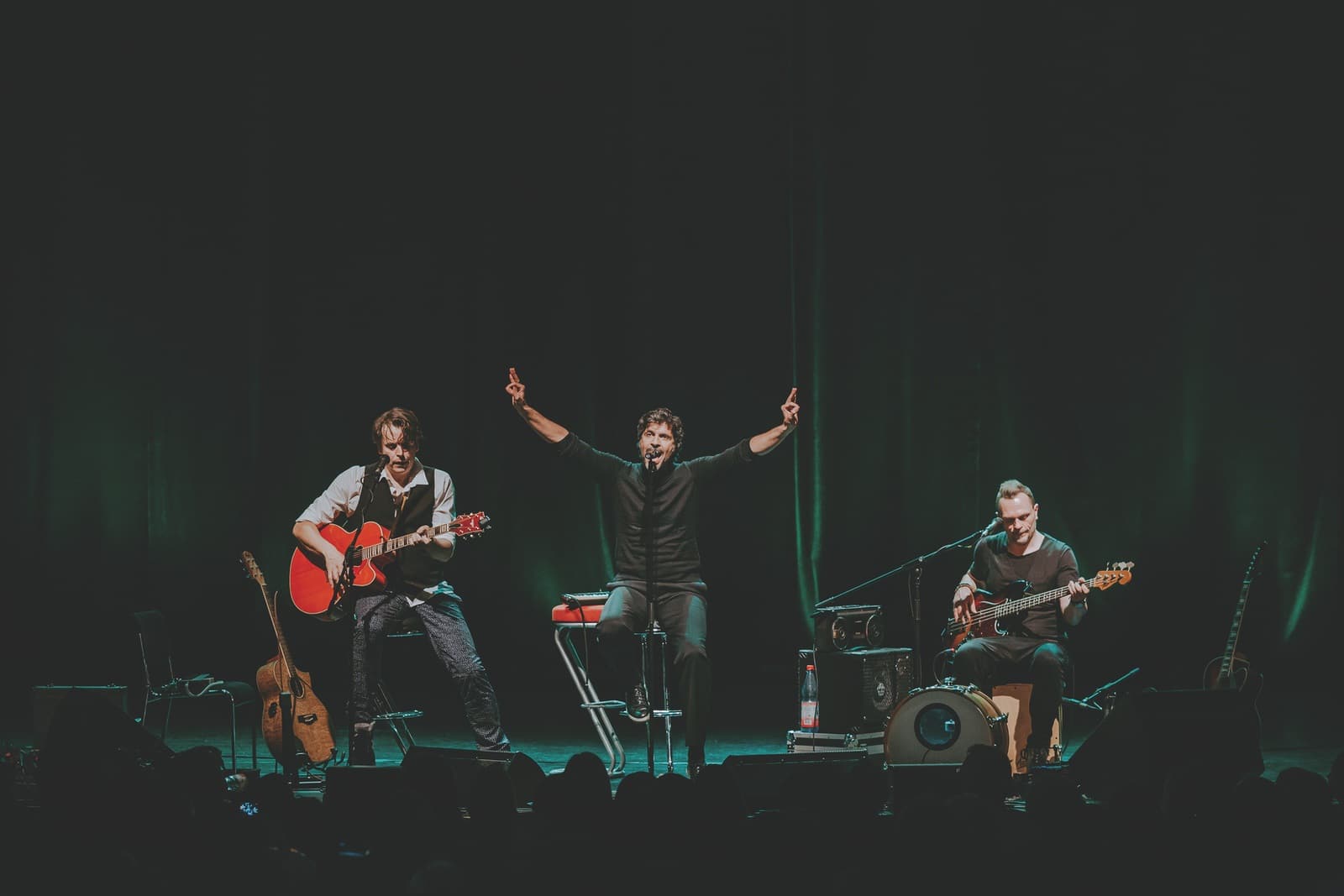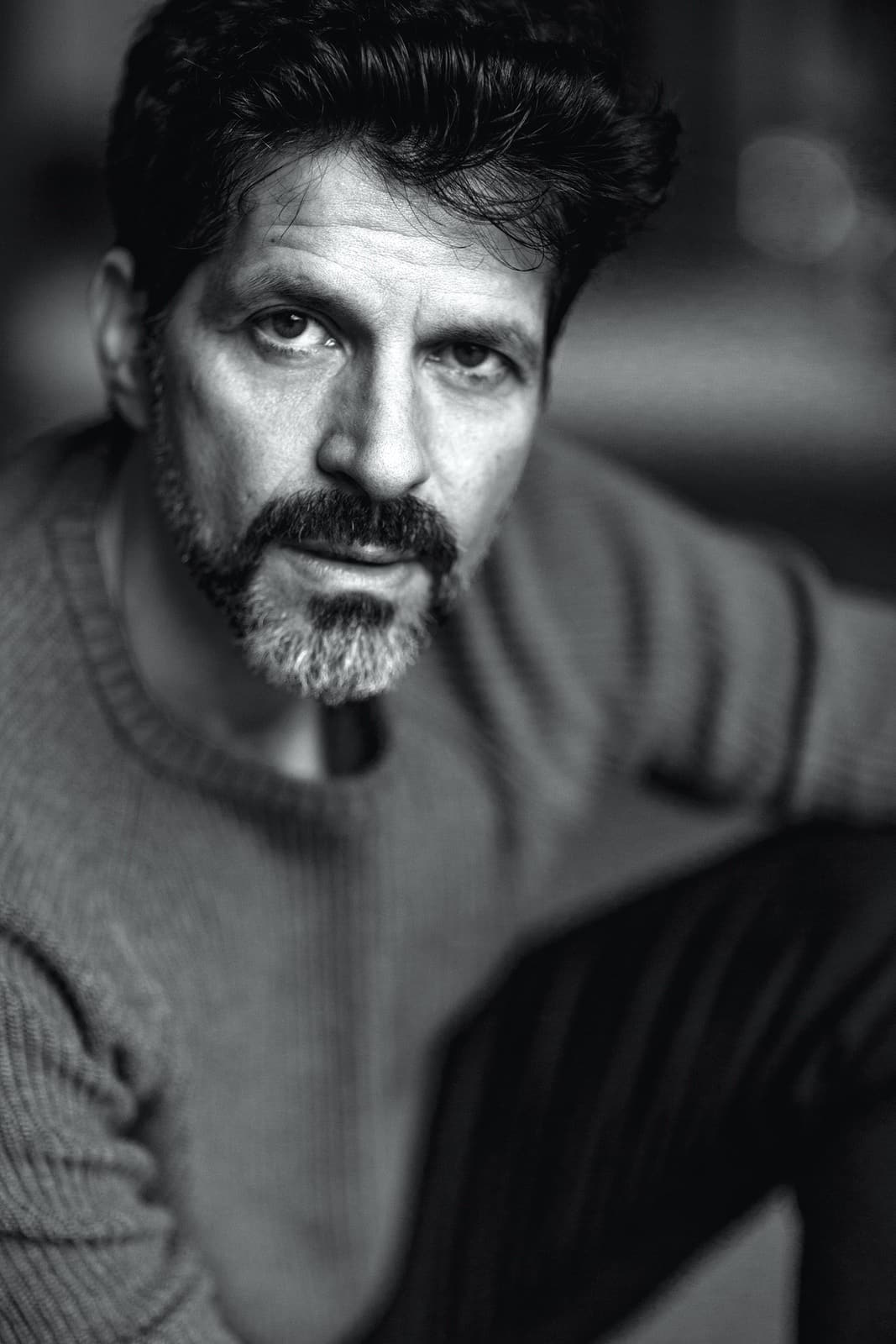Actor Jürgen Vogel on his roles as police commissioner and family man as well as his experiences in Berlin across the Spree river.
What appeals to you about the police commissioner character you play in the TV series «Jenseits der Spree» (Across the Spree River)?
The basic idea was to do a Friday night crime thriller that holds a slightly different narrative. Robert Heffler is a single father who tries to be a good policeman. He does, however, not always succeed in doing so due to getting distracted by the conflicts he has at home with his three daughters.
Your four own and two adopted children are between 4 and 35 years old. I guess that challenges you both as a father and grandfather?
When we go to the playground together, some funny moments do actually happen when my daughter asks me «Daddy, can you help me swing?» and the grandson asks: «Grandpa, please come to the slide!»
Heffler has a secret lover, his boss. Have you experienced love in the workplace yourself?
I’ve certainly had crushes in the last forty years, but I’ve never been with an actress for a long time. Until I met my current fiancée, I couldn’t have imagined it because you travel so much in this profession that a couple hardly sees each other when they are both successful.
How did Natalia Belitski and you meet?
In 2016, I portrayed a chef in the two-part film «Familie!» (Family!) who is married and has a small child, and Natalia played my assistant. But they did not only work together, they also had an affair.
Will you and your fiancée soon be seen together in front of the camera again?
I would very, very much like to produce a film with her. Possibly I might direct it. I am now 55 years old and would like to get involved in this way in the near future. I founded a production company for independent films with Matthias Glasner back in 1996.

You also act in commercials. The 2006 Sparkasse commercial looked like you wanted to try out how it feels to play James Bond…
(Laughs) I simply enjoy conveying advertising messages in an original way in interesting, funny films. Money, however, is not the decisive factor. I have to be able to support what I do and what kind of company it is.
You love leaving your comfort zone behind as an actor. Where do you do that in real life?
As a father, or in the martial arts I do, where you are nothing but who you are fundamentally and have to overcome your weaker self every time. So I don’t really make myself comfortable in my private life either, and that applies just as well to the work I do. Aybi Era, who plays Mavi, with whom Robert forms a team, and I often write text messages to each other in the evenings after shooting with suggestions regarding changes and ideas for dialogue.
In 1986 you moved to Berlin because people were not drafted into the German armed forces there. What put you off most about it?
I had just found my feet in acting and was afraid that I would be forgotten if I had to serve a year and a half in the armed forces. I also have some issues with authority. If I had been ordered to do something there that I couldn’t understand, I might have been sent to a prison.
How did it come about that you lived in Berlin for two years in a shared flat with the current «Tatort» police commissioner Richy Müller?
I met him at a shoot shortly before. Although he is 13 years older, we hit it off right away. He was also a great role model. Social dramas like “Die grosse Flatter”, where he played the lead role, had made a big impression on me.
Robert De Niro in «Taxi Driver» is also said to have been a major inspiration. You didn’t share a flat with him, did you?
No, unfortunately I did not! (Laughs) But I was able to shake his hand briefly when he presented me with the acting award for «Der freie Wille» (The Free Will) at his Tribeca Film Festival in New York in 2006.

Köpenick is far away from the chic and cosmopolitan parts of Berlin. What makes this neighbourhood exciting for «Jenseits der Spree»?
It’s a kind of neighbourhood that Berlin consists of as well, with a good mix of normal working class people and young creatives who appreciate the quality of life and the more affordable rent. And the neighbourhood has corners that have not been seen so often yet.
Köpenick has also become better known recently through the successes of FC Union. Are you a «Unioner»?
Let’s put it this way: I think the club is really great, really likeable! Our director, who is a fan, also once took us to one of the club evenings where we had a chat with the Unioners about their football and our series.
Urs Fischer, who was voted coach of the year, is from Zurich. Do you have a connection to Switzerland?
I have already shot several films in Switzerland, «Wachtmeister Zumbühl» (Constable Zumbühl) with Urs Odermatt and «Zornige Küsse» (Angry Kisses) with Judith Kennel. Rudolf Santschi is an excellent producer. But all that was a long time ago. So it would be about time for something to crop up again. Maybe I can influence it, if I work as a director.
Jürgen Vogel, an actor, was born in Hamburg on 29 April 1968. He made his breakthrough with Sönke Wortmann’s comedy film «Kleine Haie» (Little Sharks, 1992). Other milestones include «Das Leben ist eine Baustelle» (Life Is All You Get, German Film Award 1997), «Der freie Wille» (The Free Will, Silver Bear awarded at Berlinale 2006), «Die Welle» (The Wave, 2008) and the thriller series «Blochin» (2015). Vogel lives with his fiancée Natalia Belitski and their daughter in Berlin-Charlottenburg. He is currently to be seen on SRF 1 on Tuesdays at 8.05 pm and on ZDF on Fridays at 8.15 pm in the 3rd season of the crime series «Jenseits der Spree» (Across the Spree River).
Photos Copyrights: Stefan Klüter, ZDF/Oliver Feist











